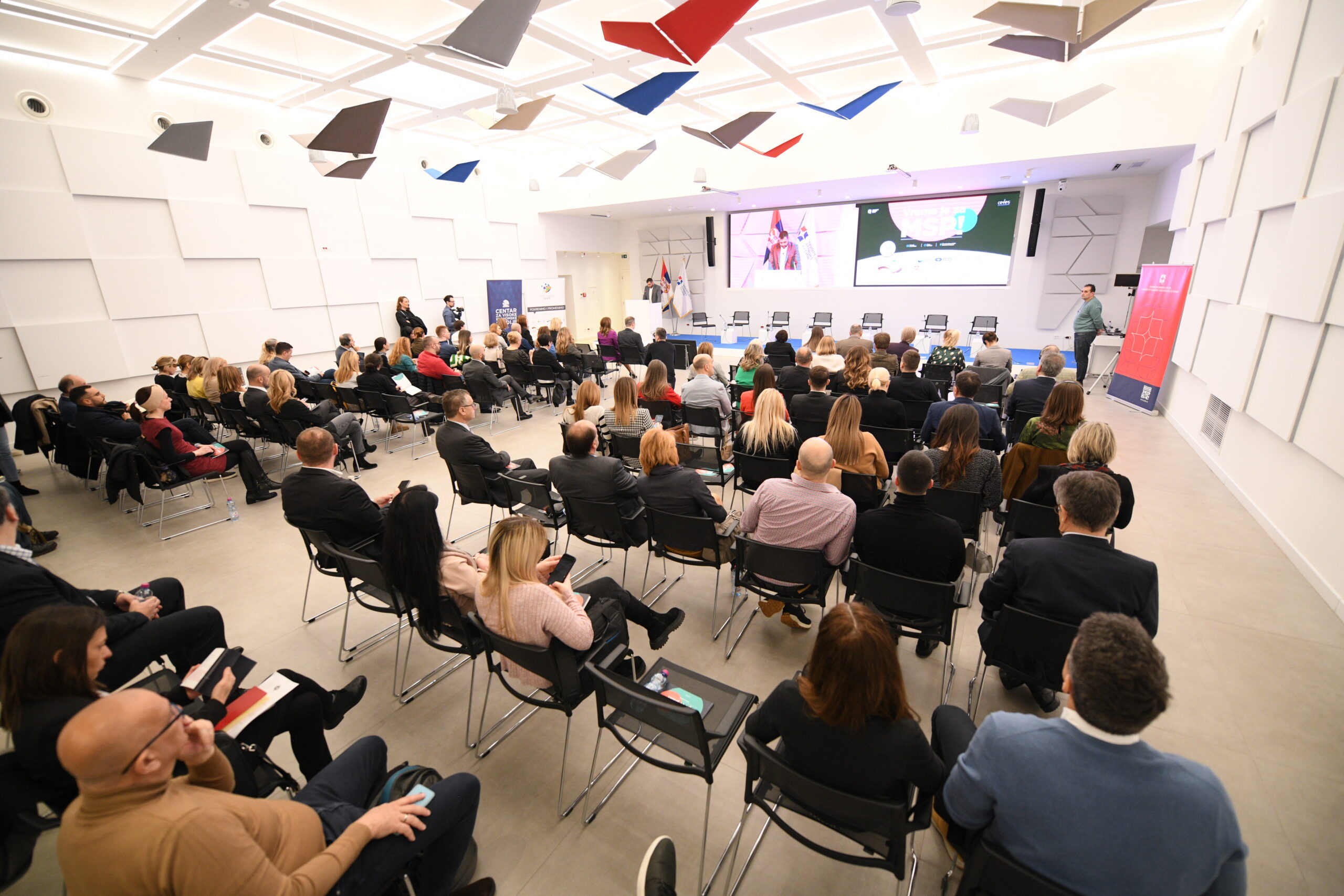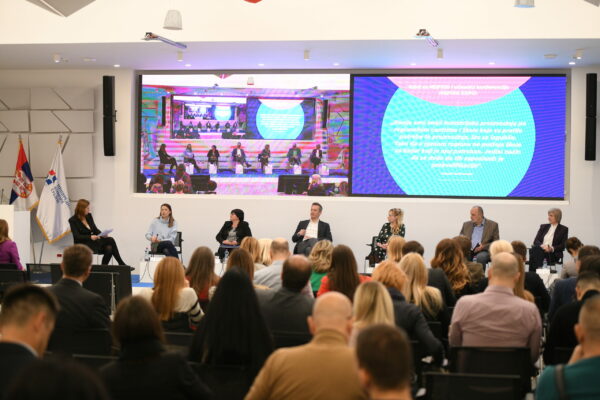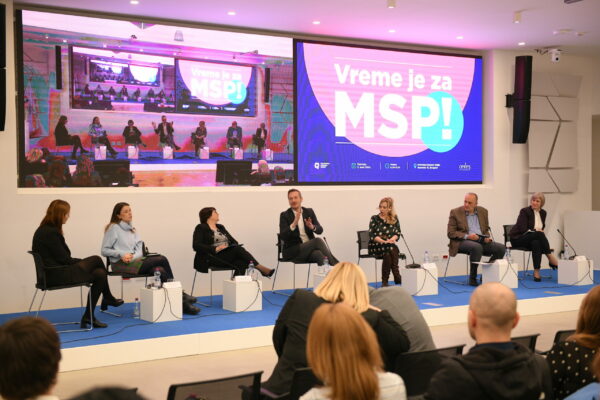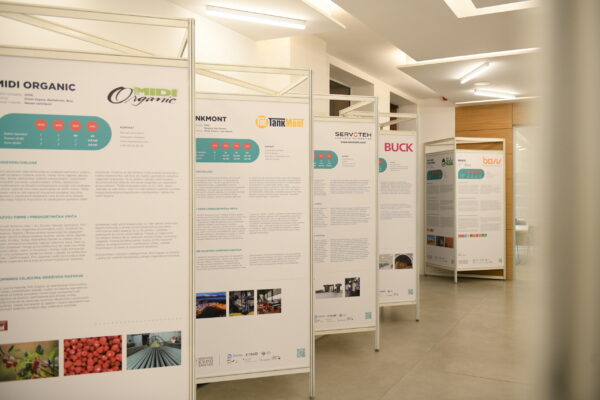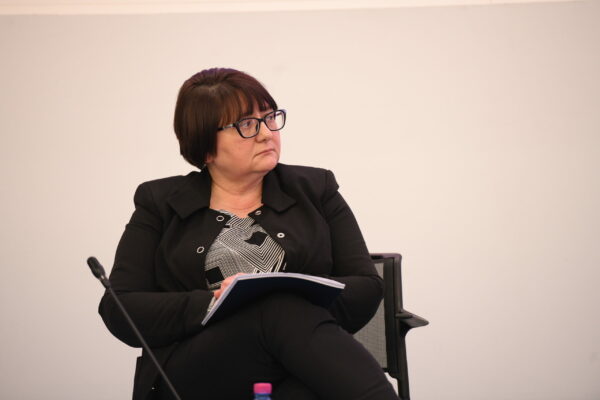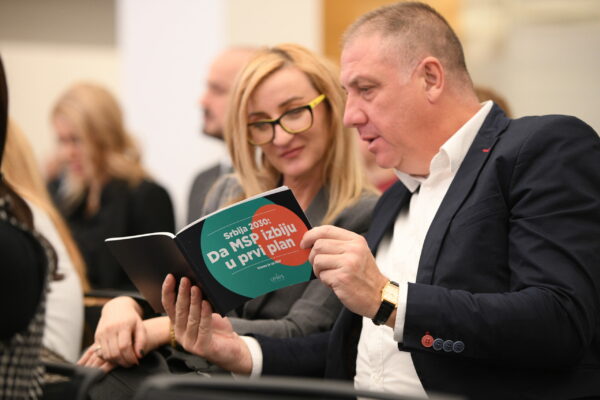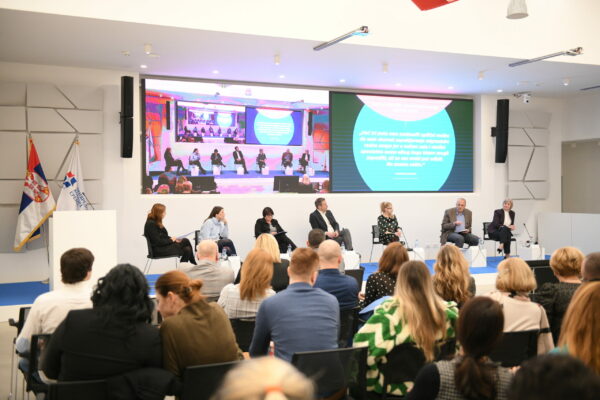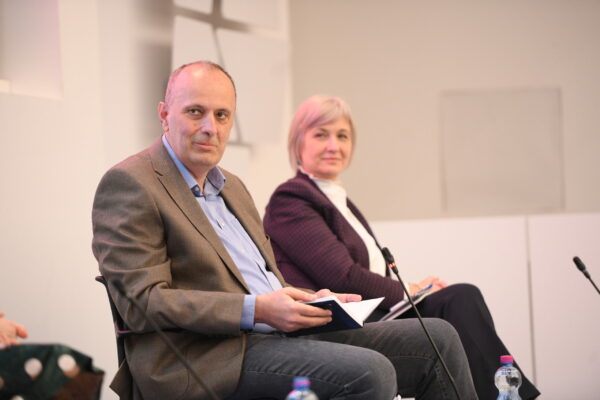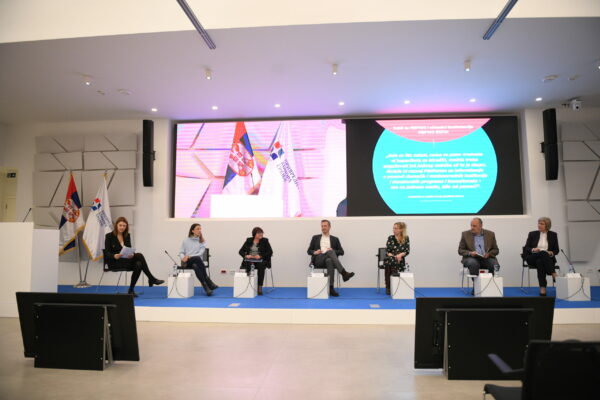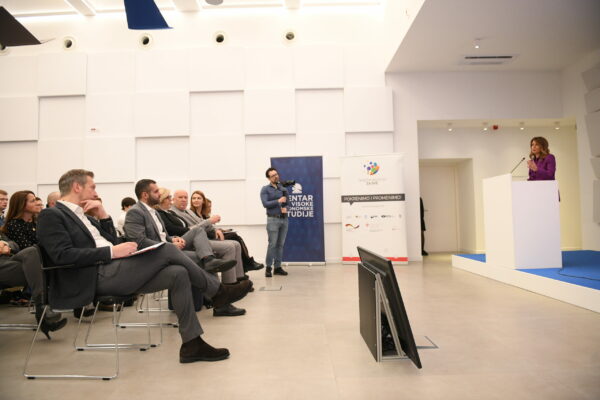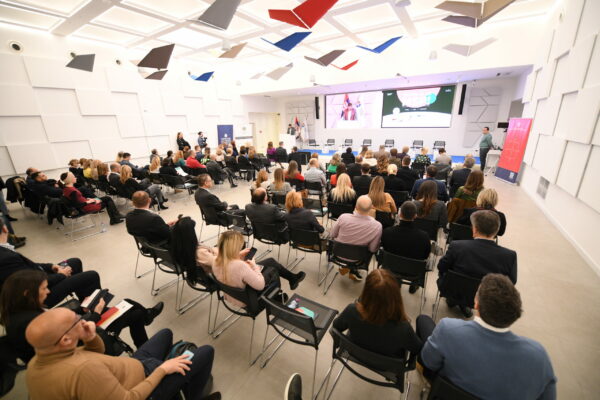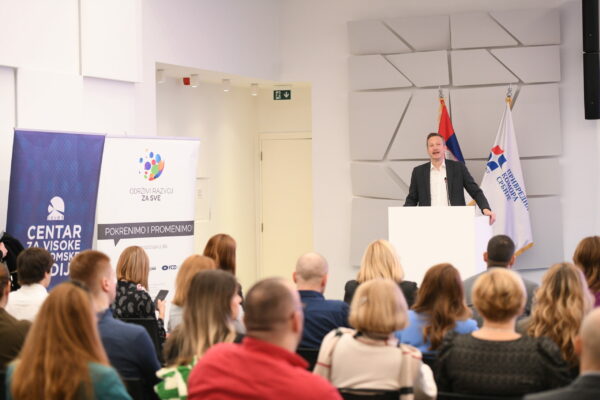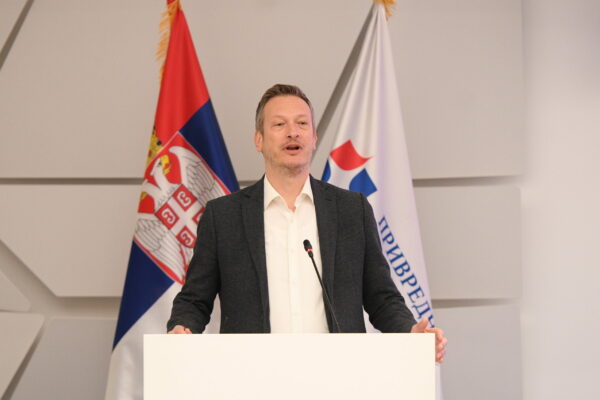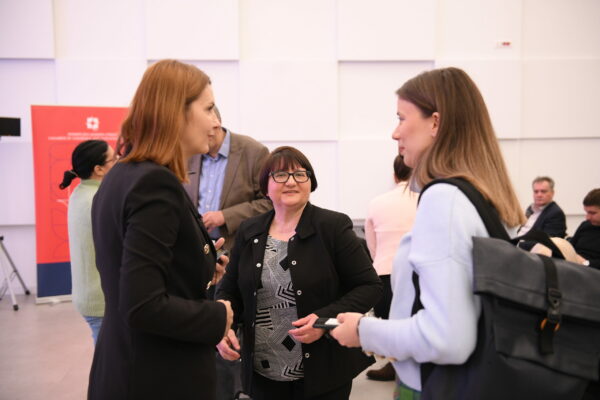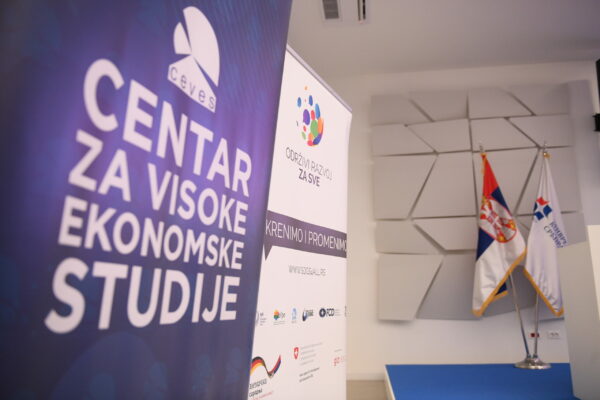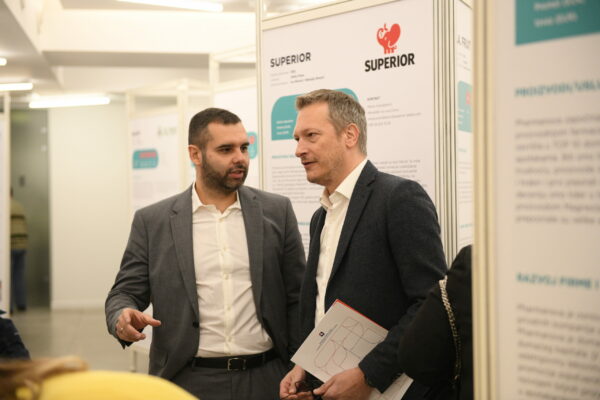Belgrade, March 2, 2023 – Small and medium-sized enterprises (SMEs) are the main drivers of the domestic economy, creating 60% of added value, 66% of employment, and contributing 45% to total exports. As such, they represent the foundation and driving force of the new Serbian economy, and they have tremendous potential to contribute to the sustainable development of Serbia in the next decade and achieve all the goals of the 2030 Agenda for our country. However, the domestic SME sector does not enjoy the same level of attention and support as large enterprises, and it is necessary to place SMEs at the center of development policies. This was the main conclusion of the “It’s Time for SMEs!” panel discussion organized jointly by CEVES and the Serbian Chamber of Commerce.
As part of the “Sustainable Development for All” platform, the Center for Advanced Economic Studies (CEVES) has been engaging in dialogue with key Serbian entrepreneurs for over two years to identify the needs of Serbian economy development and initiate initiatives that will contribute to achieving this vision by 2030. In this regard, today the panel discussion “It’s Time for SMEs!” was held, where representatives of small and medium-sized enterprises, state institutions important for the development of the SME sector, the Serbian Chamber of Commerce, and others interested in the further development of the SME sector discussed what is needed for this sector to continue growing and make an even stronger contribution to the sustainable development of Serbia.
“The state, as well as society, needs to focus on creating a supportive business environment and put an end to the practice of discriminating against SMEs administratively and in other ways compared to large enterprises. The attention given to SMEs in policies and financial resources should be equalized with that given to large enterprises, in line with the good practices of the EU,” said Nemanja Šormaz, Director of CEVES, during the panel’s opening remarks, emphasizing that CEVES, together with other partners, will continue to advocate for the initiatives identified by SMEs.
Although overshadowed by foreign direct investment (FDI) and large state and public systems, SMEs demonstrate continuous growth capacity and the strength to play a key role in Serbia’s further development. Despite the insufficient stimulating environment, the number of micro, small, and medium-sized enterprises increased by over 78,000 from 2015 to 2020 (including 10,600 new companies), the number of employees increased by 163,742 (20.4%), the total growth of gross value added was 46.4%, while exports – the main indicator of competitiveness – increased by EUR 1.4 billion (26.8%).
“Our task is to help precisely the small and those who do not have their internal resources because they are the ones who need the greatest support from organizations. This is a job that must have a broad front of activists who assist and draw attention to the problems faced by small and medium-sized enterprises,” said Mihailo Vesović, Director of the Department for Strategic Analysis, Services, and Internationalization at the Serbian Chamber of Commerce.
As one of the significant obstacles to accelerating the growth and productivity of SMEs, the participants of the discussion identified the fact that SMEs are not exempt from corporate income tax on investments as large enterprises are, especially those resulting from foreign direct investment. They also highlighted the lack of adequate institutional support in international financial transactions (export insurance, guarantees), which is common practice in other European countries and the region.
Dušan Šarković, owner and director of DMV Kontrolni sistemi from Niš, addressed the issue of tax credits, stating that most SMEs cannot reach the threshold of half a million euros in investment and 200 employees required for this measure. He suggested that it would be good to redefine this mechanism to include domestic small and medium-sized enterprises, as was the case until 2013.
The panelists agreed that small and medium-sized enterprises are the backbone of the domestic economy and that they make an immeasurable contribution to Serbia’s exports and employment, particularly in areas where foreign companies have no interest in establishing a presence, thus strongly contributing to reducing inequality and depopulation in Serbia.
Today’s event included the participation of Mihailo Vesović, Director of the Department for Strategic Analysis, Services, and Internationalization at the Serbian Chamber of Commerce; Slavica Savičić, State Secretary at the Ministry of Finance; Tatjana Matić, Director of the Development Fund; Vesna Vučetić, Director of the Credit and Guarantee Sector at the Development Fund; Jelisaveta Lazarević, Vice Dean and Assistant Professor at the FEFA Faculty; Dušan Šarković, owner and director of DMV Kontrolni sistemi from Niš, and Zorica Ilić, Financial Director of the company Dmiteh from Gornji Milanovac. The discussion was moderated by Marijana Radovanović, Development Advisor at CEVES.
As part of the exhibition section, leading domestically-owned SMEs in Serbia were presented, companies whose direct export of their products and services to demanding markets has exceeded EUR 1 million in value in recent years. The event is a continuation of the successful MSP100 Expo conference organized by CEVES in early June in Kragujevac.
The panel discussion and exhibition were organized by CEVES and the Serbian Chamber of Commerce within the “Sustainable Development for All” platform, supported by the governments of Switzerland and Germany and implemented by GIZ as part of the “Public Finance Reform – Agenda 2030” project.


